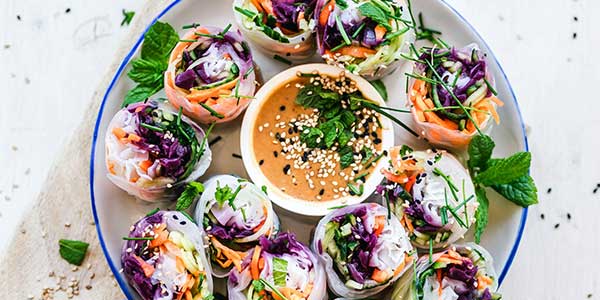Plant-Based Transition Tips For Beginners
Focus on the Benefits of Eating More Plants
Plant-Based Foods Help Animals
Choosing plant-based foods over animal products saves countless animals. As no animals need to suffer on industrial farms to produce plant-based proteins like beans, peas or soy milk, it’s a much more humane way to eat. Plus, a large portion of crops grown today are fed to livestock, so choosing plants also helps wild animals and their habitats by reducing the need for cropland.
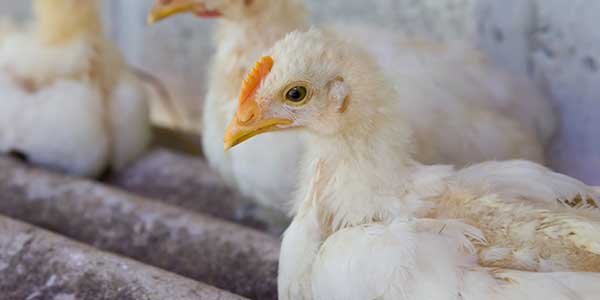
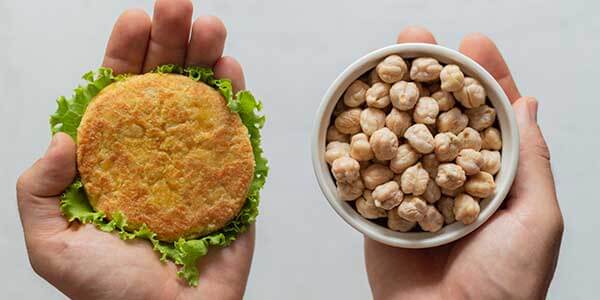
Plant-Based Foods Help the Environment
Choosing to eat plants more often improves the health of our planet by decreasing greenhouse gas emissions, pollution, deforestation, habitat destruction and biodiversity loss, and the overuse of fossil fuels and water. In fact, eating more plant-based foods is one of the biggest ways that individuals can help mitigate climate change.
Plant-Based Foods Are Good for Your Health
Studies have shown that opting for whole, plant-based foods reduces the risk of heart disease, type 2 diabetes, hypertension and certain types of cancer. Plant foods are full of fibre, which improves gut health and immunity. Other potential benefits of a plant-forward diet include more energy, clearer skin and weight loss or weight maintenance.
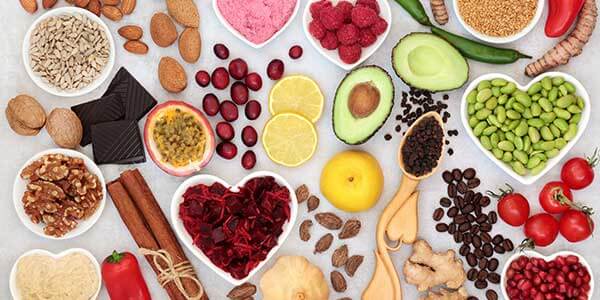
Transition Tips
- Start with simple swaps, for example using unsweetened soy or almond milk in lieu of cow’s milk and using flaxseed “eggs” in lieu of eggs in baking.
- Pick your favourite foods and look for plant-based alternatives to the animal-based ingredients.
- Be open-minded and try foods you have never experienced before.
- Find plant-based recipes that you and your family enjoy, and make them frequently.
- Focus on adding more of the good-for-you foods first, like the foods listed below.
- Educate yourself on nutritional needs for optimal health, to ensure you feel great.
- Learn about the positive effects of plant-forward or plant-based dietary patterns on our health, the environment and the animals for extra motivation.
- Remember that plant-based eating is a lifestyle and that it may take time and effort, so stay patient and be kind to yourself. It is worth it for our health, our planet and of course, the animals!
Plant-Based and Plant-Forward Eating
When we refer to plant-based items, we are talking about dietary patterns, ingredients and dishes which are sourced entirely from plants: they contain no animal products or by-products such as meat, fish, eggs, dairy, or honey.
When we refer to plant-forward dietary habits or dishes, we mean items that are made primarily from plants but may contain some animal-based items as well.
Forward Food supports both, but everything our program provides is 100% plant-based in the interest of being accessible to the widest possible audience of consumers and having the biggest possible positive impact on our food system.
Foods That Make Up a Healthy Diet
Canada’s Food Guide, updated by Health Canada in 2019, includes this recommendation for individuals: “Eat plenty of vegetables and fruits, whole grain foods and protein foods. Choose protein foods that come from plants more often.”
To help guide you in making these choices, Forward Food Chef Amy Symington put together the following list of foods to consume often. Chef Amy is a nutrition professor, researcher and plant-based chef at George Brown College and she is currently a PhD Candidate at the University of Toronto in Nutritional Sciences.
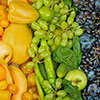
A rainbow of different coloured fruits
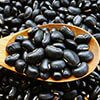
Beans and legumes (chickpeas, black beans, kidney beans, cannellini beans, aduki beans, pinto beans, black eyed peas, lima beans, lentils, etc.)

Citrus fruit, unless they conflict with medication (grapefruit, oranges, lemons, limes, etc.)
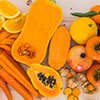
Cooked/raw orange fruits and vegetables like carrots
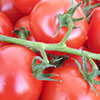
Cooked/raw red fruits and vegetables like tomatoes

Fermented foods to aid in a healthy gastrointestinal tract (miso, sauerkraut, kimchi, tempeh, etc.); consume lower sodium varieties where possible
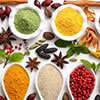
Fresh/fried herbs and spices (turmeric, black pepper, cinnamon, cumin, coriander, paprika, basil, oregano, chili flakes, etc.)
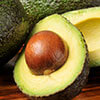
Healthy fats (avocado, nuts, seeds, olive oil, grapeseed oil, etc.)
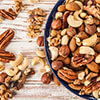
Nuts/nut butters (walnuts, almonds, pecans, pistachios, hazelnuts, cashews, etc.) Seeds/seed butters (sesame seeds, tahini, pumpkin seeds, chia seeds, hemp seeds, flax seeds, etc.)
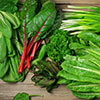
Vegetables of all kinds, particularly dark, leafy greens as well as orange and cruciferous vegetables (broccoli, cauliflower, brussels sprouts, cabbage, radishes, etc.)
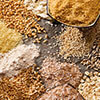
Whole grains (quinoa, brown rice, millet, spelt, kamut, freekeh, barley, whole rolled oats, whole grain flours, etc.)
Vitamin and Mineral Intake
Plant-Based Protein Sources
- Soy products like tofu, edamame, tempeh, soy milk
- Lentils and peas
- Beans such as chickpeas, black beans, pinto beans, kidney beans, aduki beans
- Seeds such as chia seeds, hemp seeds, pumpkin seeds and sunflower seeds
- Whole grains like quinoa, buckwheat, millet, oats, sorghum, teff, amaranth and wild rice
Plant-Based Calcium Sources
- Green leafy vegetables like kale, bok choy, spinach or collard greens
- Cruciferous vegetables like broccoli and cauliflower
- Tofu
- Tahini and sesame seeds
- Mineral water
Plant-Based Omega-3 Sources
- Walnuts
- Flaxseeds
- Chia or hemp seeds
- Algae
- Plant-based supplements
Plant-Based Vitamin B12 Sources
- B12 fortified milk alternatives
- Nutritional yeast
- A B12 supplement if needed (it is usually a good idea to check with your doctor or other health care practitioner)
Plant-Based Iron Sources
- Protein-rich foods like lentils, chickpeas, beans, tofu, tempeh and edamame
- Green leafy vegetables
- Dried fruit
Tip: Couple these with vitamin-C rich food like oranges, strawberries and red peppers to increase absorption of iron.
Plant-Based Vitamin D Sources
- Sunshine
- Fortified milk alternatives
- Irradiated mushrooms
- Vitamin D supplements
Tip: Some Vitamin D supplements come from lanolin, an oil from sheep. Plant-based vitamin D supplements use lichen.
Become a Plant-Based Ambassador
Discover More
Forward Food
Our Forward Food program offers a wealth of information and resources for individuals and families who want to add more plant-based foods to their diets.

